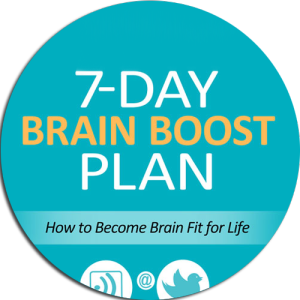Haven’t we all been there?
We know exercise is good for us – the trouble is, it means stopping what you are doing, getting out of that comfy chair and putting one foot in front of the other!
And we all know of some fitness freak who died at a frighteningly early age. Look where exercise got him!
But an exciting new study has just demonstrated that we don’t have to exercise like crazy to have a fit and alert mind.
Moderate, everyday exercise will do it.
That’s great news!
New studies just published by Canadian researchers measured the brain function and exercise levels of a large group of elderly adults for two to five years. Most of the volunteers described their exercise as “walking around the block, cooking, gardening, cleaning and that sort of thing,” said Laura Middleton, associate professor at the University of Waterloo in Ontario.
But the effects of this modest exercise on the brain were remarkable. The volunteers who took no exercise scored significantly worse over the years on tests of cognitive function but the most active group showed little decline.
About 90 percent of those with the greatest daily energy expenditure found that they could think and remember just about as well as when they began the study. And this ability remained year after year.
“Our results indicate that vigorous exercise isn’t necessary to protect your mind”, Dr. Middleton said. “I think that’s exciting.”
In another study in the same journal, women, mostly in their 70s, either with vascular disease (‘hardening of the arteries’) or were at risk of developing it, were surveyed for five years. The most active walked but the others took only moderate or no exercise. Again there was “a decreasing rate of cognitive decline” among the active group much less that among the sedentary.
“Walking and other light activity had bought them, essentially, five years of better brainpower”said Jae H. Kang, an assistant professor of medicine at Brigham and Women’s Hospital at Harvard Medical School
“If we can push out the onset of dementia by 5, 10 or more years, that changes the dynamics of aging,” said Dr. Eric Larson, vice president of research at Group Health Research Institute in Seattle. “None of us wants to lose our minds,” he said.
More and more scientific research is linking activity and improved mental functioning.
“It is a wake-up call. We have to find ways to get everybody moving.”
And here’s even more evidence.
Light-duty weight training changes how well older women think and how blood flows within their brains. After 12 months of lifting weights twice a week, M.R.I. scans showed that portions of the brain that control thinking were considerably more active.
Aging, Mobility and Cognitive Neuroscience Laboratory at the University of British Columbia
Teresa Liu-Ambrose, assistant professor, says
“Weight training appears to be a viable option, and if people enjoy it, and stick with it, then more of us might be able, potentially, to ameliorate mental decline well into late life”.
What does this mean for Boomers?
- You KNOW what it means!

- Even the smallest increase in your daily exercise can add years to your brain resilience.
- Sign up for Brain Tune below and find our more ways to keep your brain youthful.
Source: New York Times, July 27, 2011
Get your own 7-Day Brain Boost Plan showing you the exercise you need, what to eat and the brain challenges you need.




